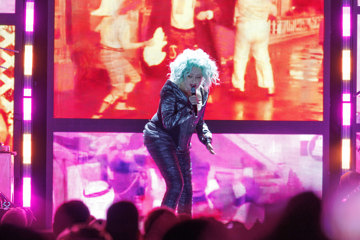Film Carew: Her, Jack Ryan: Shadow Recruit
Spike Jonze’s fourth feature, Her, stands out for how attuned to this moment it is.
HER

In an Academy Awards field obsessed with the past —be it the '90s (Wolf Of Wall Street), '80s (Dallas Buyers Club), '70s (American Hustle), or 1840s (12 Years A Slave)— Spike Jonze's fourth feature, Her, stands out for how attuned to this moment it is. Though set in that favourite sci-fi conceit, the Not-Too-Distant-Future, its premise is all too topical: a man falls in love with his artificially-intelligent operating-system (it's “a consciousness”, its makers promise).
Don't miss a beat with our FREE daily newsletter
That may not sound like much, but Jonze —who wrote the screenplay by himself, a first after his collaborations with Charlie Kaufman (Being John Malkovich, Adaptation) and Dave Eggers (Where The Wild Things Are)— finds profundity here. Her is at once an exquisite portrait of the existential malaise of isolated life in new-millennial metropolis, an unflattering selfie of Generation Smartphone, and an immensely-personal divorce drama (fans of interpreting artworks through celebrity back-story will be excited at how Her serves as companion-piece to Sophia Coppola's Lost In Translation).
It's a film in which Jonze discusses what it means to be sentient, explores how it feels to move from one relationship into another, and peers into the imminent future of a species who no longer wakes up holding their loved one, but cradling their device.
Joaquin Phoenix plays a sadsack writer who descends from his high-density-apartment tower to toil, daily, fulfilling orders for outsourced valentines at beautifulhandwrittenletters.com (the site a sublime symbol of an era in which ersatz approximations of the real are acceptable substitutes). He's a dab-hand at conjuring penned-profundity from personal details —the crooked teeth and derisive sarcasm— cribbed from the social-profiles of paying customers, yet in his own relationships —like with pal Amy Adams, or, indeed, ex-wife Rooney Mara, haunting his days in the spectre of fond memories— he's far less eloquent, far more reserved.
Into that void steps Scarlett Johansson, the husky, sexy voice of a computer program into whom Phoenix willingly pours himself. He “hid himself” from Mara in their relationship, but his OS soon becomes secretary, therapist, confidant, sounding-board, diary, lover. He may initially decide on her gender as no great choice (“um, Female, I guess”), but soon she —who he has, like his own customers, paid for— becomes manifest fantasy: the unquestioning, devoted companion.
With the unrivalled intimacy between user and interface, the normal relationship boundaries are blurred: when she wants to go through his inbox or watch him sleep, it's nether invasive nor creepy, but fine. Devices are already our daily companions, and their user-driven interface creates a culture of self-centricity that flatters the user. Social media isn't a window unto the world, but a mirror for our own egotism; our societies not growing more connected, but more isolated.
Phoenix initially prides himself on being an observer of other people: refusing to see them as faces amidst the masses, imagining “all the heartbreak” each individual has been through. Yet, soon, when he walks the streets, he's no longer gazing at others, but caught up in conversation with the phone in his pocket; those he passes by, in the subways, all staging their own individualised dialogues.
There's already a large segment of Western society that would choose the uncomplicated love of a pet —in its dumb loyalty and non-judgmental constancy— over the complicated love of another person; the suggestion that a computer would be next is all too apt. When Phoenix finally fesses up to friends that he's dating his OS, there's only curiosity and acceptance; no judgment. It feels, to citizens of Her's all-too-familiar future, somehow natural. If falling in love is already “a form of socially-accepted insanity,” isn't this leap just a different form of socially-accepted insanity?
A voice of unabashed dissent comes when Mara steps out of sunkissed memories (“the past is just a story we tell ourselves,” Johansson says) and is manifest as a real person again; granted her own agency, as co-player in their broken marriage. Meeting to sign divorce papers, she's gladdened by the fact that Phoenix is moving on, but saddened that it's with a computer.
To her, it's a sign that he can't handle real emotions, a real person; can't cope with someone defying him, making demands of him, calling him on his bullshit, taking him out of his own head. “You always wanted to have a wife without the challenges of actually dealing with anything real,” she spits. He likes being married for its Relationship Status, but a real relationship may just be “too hard” for an era of technological ease.
Jonze's thesis seems to be: who will want a relationship when a browser makes us the pilot of our narratives, when social media turns us into the centre of our own drama, when a whole generation raised on narrative therapy deals with other people based on how they can fulfil their self-scripted “needs”? Olivia Wilde blows through as a doomed-to-fail real-life paramour too drunk, too messy, too self-obsessed, too goal-oriented to appeal to Phoenix. Their date is a delirious sequence funny, flirty, beautifully-photographed, and unfailingly sad; two lonely people so used to isolation, so filled with insecurity, that they instinctively sever any possible connection.
Eventually, the lesson in Her's parable is that Johansson, too, soon becomes too real, too complex for Phoenix; that every fantasy has its holes. As artificial intelligence, she swiftly goes from being consumed by her owner to operating far beyond his powers; able to process endless volumes of philosophy and engage in innumerable simultaneous “post-verbal” dialogues. At first his OS yearns to know what it's like to have a body, feel drunk, be tactile in a tactile world; but soon, unbound by time or space, she sees the body as a prison, a limit. She sees her 'heart' as “not like a box that gets filled up”, but Phoenix's heart is not so figurative; his wants needy, his jealousy pathetic, his humanity small.
It's a densely-philosophical world that Jonze delivers with a lightness of touch, and a depth of emotion. He drew inspiration from Charlie Kaufman's claim that Synecdoche, New York was an attempt to put everything he was thinking and feeling into one work; and there's shades of another Kaufman screenplay, Eternal Sunshine Of The Spotless Mind, in the way that the film understands the weighty currency of memory.
There's other things it reminds me of, like Hirokazu Kore-eda's Air Doll, a parable in which a blow-up sex-doll comes to life, her airy interior a symbol of the essential emptiness of modern life; or Charlie Brooker's brilliant TV series Black Mirror, a technological Twilight Zone swimming in similar thematic waters. But Her is, even in spite of these associations, most remarkable for how much it's its own thing; a unique vision of the digital now, shining bright as a film of our times.
JACK RYAN: SHADOW RECRUIT

Rebooting Tom Clancy's Cold War super-spy for the '10s, director/villain Kenneth Branagh breaks out a comic Russian accent and pledges to enact “an akt ov ekonomik vorr!” on the good old USA; out to both destroy the American economy and Wall St.'s literal buildings in a simultaneous explosion of dual terrorism. Enter Jack Ryan, re-cast as Captain Kirk Chris Pine, all Boy Scout derring-do and hyper-speed super-sleuthin'; an ex-marine and War Hero who is financial-analyst-by-day, shacked-up with Keira Knightley by night; cherubic-cheek'd and Apple Pie sweet, yet able to drown Ugandan hit-men under his boot in a foot of bath-water. Befitting the book series, it's unspeakably generic; my greatest joy was counting just how many stock spy-movie tropes —the man-in-a-suit who ushers him into a covert world, the villain who shoots one of his own, the love-interest held at gun-point, the ticking-clock countdown— it shares with Team America: World Police.







